第24章 Chapter IX(1)
WHEN Elizabeth-Jane opened the hinged casement next morning the mellow air brought in the feel of imminent autumn almost as distinctly as if she had been in the remotest hamlet. Casterbridge was the complement of the rural life around; not its urban opposite. Bees and butterflies in the cornfields at the top of the town, who desired to get to the meads at the bottom, took no circuitous course, but flew straight down High Street without any apparent consciousness that they were traversing strange latitudes.
And in autumn airy spheres of thistledown floated into the same street, lodged upon the shop fronts, blew into drains, and innumerable tawny and yellow leaves skimmed along the pavement, and stole through people's doorways into their passages with a hesitating scratch on the floor, like the skirts of timid visitors.
Hearings voices, one of which was close at hand, she withdrew her head and glanced from behind the window-curtains. Mr Henchard - now habited no longer as a great personage, but as a thriving man of business - was pausing on his way up the middle of the street, and the Scotchman was looking from the window adjoining her own. Henchard, it appeared, had gone a little way past the inn before he had noticed his acquaintance of the previous evening. He came back a few steps, Donald Farfrae opening the window further.
``And you are off soon, I suppose?'' said Henchard upwards.
``Yes - almost this moment, sir,'' said the other. ``Maybe I'll walk on till the coach makes up on me.''
``Which way?''
``The way ye are going.''
``Then shall we walk together to the top o' town?''
``If ye'll wait a minute,'' said the Scotchman.
In a few minutes the latter emerged, bag in hand. Henchard looked at the bag as at an enemy. It showed there was no mistake about the young man's departure. ``Ah, my lad,'' he said, ``you should have been a wise man, and have stayed with me.''
``Yes, yes - it might have been wiser,'' said Donald, looking microscopically at the houses that were furthest off. ``It is only telling ye the truth when I say my plans are vague.''
They had by this time passed on from the precincts of the inn) and Elizabeth-Jane heard no more. She saw that they continued in conversation, Henchard turning to the other occasionally, and emphasizing some remark with a gesture.
Thus they passed the King's Arms Hotel, the Market House, St Peter's churchyard wall, ascending to the upper end of the long street till they were small as two grains of corn; when they bent suddenly to the right into the Bristol Road, and were out of view.
``He was a good man - and he's gone,'' she said to herself. ``I was nothing to him, and there was no reason why he should have wished me good-bye.''
The simple thought, with its latent sense of slight, had moulded itself out of the following little fact: when the Scotchman came out at the door he had by accident glanced up at her; and then he had looked away again without nodding, or smiling, or saying a word.
``You are still thinking, mother,'' she said, when she turned inwards.
``Yes; I am thinking of Mr Henchard's sudden liking for that young man.
He was always so. Now, surely, if he takes so warmly to people who are not related to him at all, may he not take as warmly to his own kin?''
While they debated this question a procession of five large waggons went past, laden with hay up to the bedroom windows. They came in from the country, and the steaming horses had probably been travelling a great part of the night. To the shaft of each hung a little broad, on which was painted in white letters, ``Henchard, cornfactor and hay-merchants''. The spectacle renewed his wife's conviction that, for her daughter's sake, she should strain a point to rejoin him.